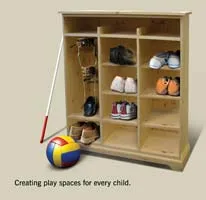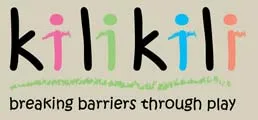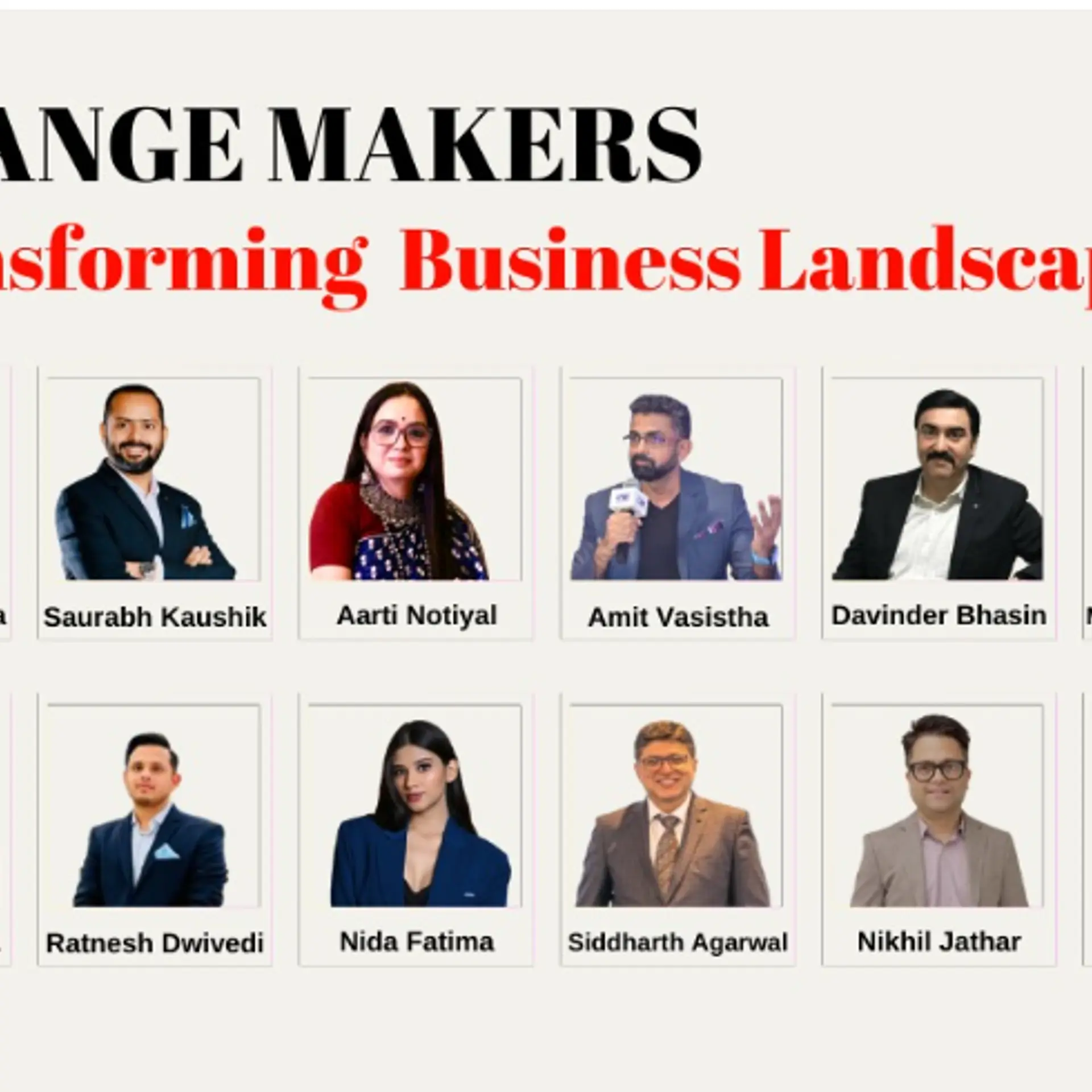KiliKili : Creating play spaces for every child
Thursday June 17, 2010 , 8 min Read
Bringing Joy to all

The purest joy is the one that children feel and the satisfaction that comes from imparting that joy to children is like no other. One organization in India has dedicated itself to making that joy happen for all children with disabilities. Kilikili – which in Kannada means the warbling laughter of a child – is a registered Trust, formed by parents of children with special needs, driven by volunteers and supported by professionals, that aims to create inclusive play spaces that will be accessible to all children, regardless of their ability.Yourstory spoke to a representative of Kilikili who answered our questions on their noble venture.
Tell us more about Kilikili
Well, Kilikili is a network of parents of children with disabilities, supported by volunteers and professionals. We came into being when a parent of a child with a disability who had taken his son to a park, remarked, "How come we never see a child with a disability in the park?" That was of course a good question to pose. It set a group of us thinking and when we researched we found that to the best of our knowledge, there was not a public play space, in a public park in India that had facilities that would welcome children with a disability.
So we thought, why not attempt to do something to change this situation. We were very clear when we started that we wanted the project to be in a public play space, where all other children play as we wanted to end the isolation and marginalization our children face. This meant that from the beginning, we would need to look at influencing the local city government that develops and manages public play facilities.
What was the idea and vision behind Kilikili?

The idea was to bring our children out into a public play space, to enable children and their families to celebrate and find joy in their childhood. It was to help develop play spaces that would allow children with disabilities to play alongside their peers, in an environment of mutual respect and learning. The vision of Kilikili is to ensure that all children, irrespective of their ability, find joy in securing their very basic fundamental right to play.How many parks have you completed and how many do you have in the pipeline?
Through collaborating with the Bangalore Municipal Corporation (our key strategy to ensure sustainability of our mission), play spaces in three public parks – Coles Park, Fraser Town; Gayatri Devi Park, Rajajinagar; and M N Krishna Rao Park, Basavangudi now have inclusive play spaces. One play space in Koramangala 1st Block Park is almost ready, with the project being initiated by the local Residents' Welfare Association. Three more projects – in Whitefield, Jeevan Bhima Nagar and Jayanagar are in the pipeline - all in collaboration with special schools and parents' groups.
It is heartening to note that the development costs of all these projects are borne by the Municipal Corporation. For the three completed parks, this would mean Rs. 35 lakhs of public money being put to use for a purpose never thought of earlier.

We have helped a parents' group in Mumbai – the Hope Foundation – design and develop an Inclusive play space in a residential colony. This project spearheaded by a dynamic parent is in its final stage of development.We are also in the process of initial discussions with groups in Ahmedabad and Chennai.
What kind of programs and services does Kilikili undertake?
Once the inclusive play space is developed, Kilikili works to ensure that these spaces are used by schools and families of children with and without disabilities. We offer four programmes currently:
- Quarterly Inclusion Events: These are Events where children from special and regular schools meet for a morning of play. One special child is twinned with one regular child and enabled to play together, thus providing an opportunity for both to interact, forging a greater understanding and sensitivity.
- School programme: Held on week mornings, this programme helps special schools bring their children to the play space, enabling the children to, not just enjoy themselves but also helps them progress developmentally.
- Saturday Family's Day Out: Every Saturday from 10 a.m. - 12 noon, families of children with and without disabilities meet. While volunteers play with the children, parents get a much needed break!
- Developing play skills among children with autism – For children with autism, it is not about play equipment but about building play and social skills. Parents and volunteers have been trained in and are now running a Play Skills programme for children with autism
Awareness programmes – Kilikili also carries out regular awareness programmes in schools, companies, communities etc. These programmes serve to impress on parents and teachers the developmental importance of play as well as its social inclusion potential.
Sustaining these programmes has however been a challenge. Since we are completely volunteer-driven, we have not been able to ensure the consistency and regularity that these programmes need. We are looking at changing our model to also incorporate a few paid staff who can ensure this consistency.

What are the challenges that children with disabilities face in terms of blending into the mainstream?
People with disabilities are often called 'challenged' - I really don't know who are the challenged – Is it that the child cannot climb the slide or are we with all our technological progress so challenged that we cannot design a slide that s/he can use? Is the problem that the child cannot walk or is it that we don't make pavements, roads, buses, parks, schools, buildings, homes, in which her wheelchair can go with ease and dignity? Is it that the child is not learning or is it our inability to teach the child in a way in which s/he can learn.
I see that the challenges are with us, members of 'mainstream' society – in our inability to ever think about people who perceive and relate to the world in ways different from us. Often when I see my son putting shape pegs in a peg board, I think “He is like a round peg and we are trying to put him into a square space – now if the square enlarged enough to accomodate the round peg, then wouldn't his life be so much easier – maybe not a perfect fit – but surely more accomodative?”
What makes it so difficult for children with disabilities is that physical and social environments do not take their needs into account that predominant attitudes of fear, scorn, ridicule persist. That they are seen often as objects of pity, sympathy, charity not as human beings who have a right and the ability to be subjects of their destiny. That they are not included in matters of everyday life experiences that they grow up being isolated and separated. This will have to change, not because we are doing our children a favor but because they have a right to the fullest of life experiences. Who are we to deny them that?
How do people get involved? Can people volunteer or donate to Kilikili
Very much- in fact we are COMPLETELY volunteer driven. Everything that has happened in Kilikili is through volunteer efforts – design of play spaces and equipment, advocacy with the Corporation, fund raising, awareness building, organizing and conducting programmes with the children, development of website, a film and other communication material.... the list goes on – everything is done by volunteers.
We invite volunteers who would like to be a part of this movement.
Donations are also most welcome. We are a registered Trust with an 80G certificate. Donations would entail you to get tax exemptions. We publish an Annual Report every year that contains all of our activities and financial statements for that year.
To find out more about how you can help click here
Is there any message you want to convey through us.
It is not the children who are disabled – it is we as a community, as a society who are not able to create conditions- whether physical or attitudinal – that enable them to participate in all of life's myriad experiences, to which every human being has a right. It is this lack of an enabling environment that is disabling. It is only when all of us can appreciate diversity in all its richness and ensure that environments are created, attitudes are broadened such that all people flourish, that we can call ourselves a truly humane society. Kilikili exists to help play a role in creating such a community.
Yourstory believes that Kilikili will meet all their goals and salutes their resolve to bettering the lives of those less fortunate.






